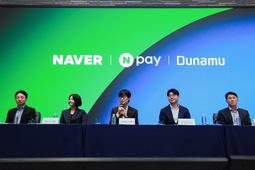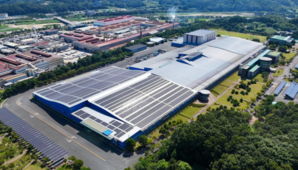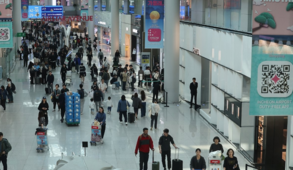
[News Space=Reporter seungwon lee] People Power Party lawmaker Kang Min-guk (Jinju-eul, Gyeongsangnam-do), who is the floor leader of the National Assembly’s Political Affairs Committee, urged the relevant authorities to investigate the truth on the 28th, saying that Hanwha Aerospace, which has ample room to issue corporate bonds, announced a paid-in capital increase, which led to a sharp drop in its stock price and massive shareholder damage.
On March 18, Hanwha Aerospace's stock price rose to an intraday high of 781,000 won and a closing price of 764,000 won, the highest level ever.
However, after announcing a paid-in capital increase of 5.95 million common shares on March 20, the stock price closed at 628,000 won on the following day, March 21, down 19.6% from the highest price.
The scale of Hanwha Aerospace's paid-in capital increase this time is 3.6 trillion won, which is the largest paid-in capital increase announced in the past three years.
As a result, the market capitalization on March 21 plummeted from 32.9096 trillion won to 28.625 trillion won, causing a huge loss of 4.2846 trillion won to shareholders. Hanwha Aerospace's stock price was 663,000 won on March 27, which is not even close to the closing price of 722,000 won on March 20, just before the announcement of the paid-in capital increase.
The problem is whether Hanwha Aerospace really lacks the ability to raise funds to carry out a paid-in capital increase, but Kang argues that this is not the case.
Since Hanwha Aerospace's corporate bond credit rating has been consistently high at AA- since Hanwha Group acquired Samsung Techwin (now Hanwha Aerospace) in June 2015, it is possible to borrow from financial institutions including government-run banks such as the Industrial Bank of Korea and the Export-Import Bank of Korea when issuing corporate bonds.
In fact, in the KRW 200 billion Hanwha Aerospace corporate bond demand forecast conducted in January of this year, KRW 2.51 trillion in institutional funds were raised, and as a result, KRW 400 billion in corporate bonds were issued, which is twice the planned amount.
Questions are being raised as to why Hanwha Aerospace, which has ample capacity to issue corporate bonds, conducted a paid-in capital increase that diluted shareholder value on such a large scale.
Rep. Kang Min-guk claimed, "There is an interpretation in the financial industry that Hanwha is using its spare funds to acquire stocks in affiliates in order to strengthen the controlling shareholder's family's control, and that it is securing new investment funds through paid-in capital increases at the expense of existing shareholders."
In February of this year, Hanwha Aerospace purchased a 7.3% stake in Hanwha Ocean held by Hanwha Impact Partners and Hanwha Energy for 58,100 won per share, or 1.3 trillion won. It is expected that Hanwha Impact Partners and Hanwha Energy will use this money to participate in a paid-in capital increase.
Eventually, as the issue of shareholder damage due to the sharp drop in stock price was raised and the stock price recovery was prolonged, Hanwha Aerospace announced on the 23rd that Chairman Kim Seung-yeon's eldest son, Kim Dong-kwan, the head of the strategic division, was purchasing the company's stocks for about 3 billion won, which is his annual salary. It is like purchasing a large number of stocks at a low price, since the price has already plummeted since the announcement of the paid-in capital increase. This is also nothing more than a 'stopgap measure', and there is even criticism that it is being used as a means of low-price purchase and deceiving existing shareholders.
Rep. Kang Min-guk said, “Hanwha Aerospace, which caused a huge loss of more than 4 trillion won in market capitalization in a single day by simply issuing new capital without asking questions, has proven its lack of management capabilities in line with its social responsibility.” He added, “The financial authorities and the Fair Trade Commission must thoroughly investigate the possibility of violations of relevant laws, as the funds raised through the new capital increase were used to unfairly shift the financial burden of the succession process to shareholders, rather than for its original purpose.”
Rep. Kang also said, “It is necessary to hold a hearing at the National Assembly’s Political Affairs Committee on the ‘suspicious capital increase by Hanwha Aerospace’ that is causing enormous damage to shareholders due to the company’s opaque fund flow and corporate operations that are betraying the trust of the public and the market.”
Meanwhile, when Hanwha Aerospace announced a paid capital increase, individual investors sold off 128.2 billion won worth of Hanwha Aerospace stocks during the week, and foreigners bought Hanwha Aerospace stocks at low prices, keeping in mind favorable news about defense industry in Europe. According to the Korea Exchange on March 28, the stock that foreigners bought the most from March 24 to 28 was Samsung Electronics, followed by Hanwha Aerospace.
























































